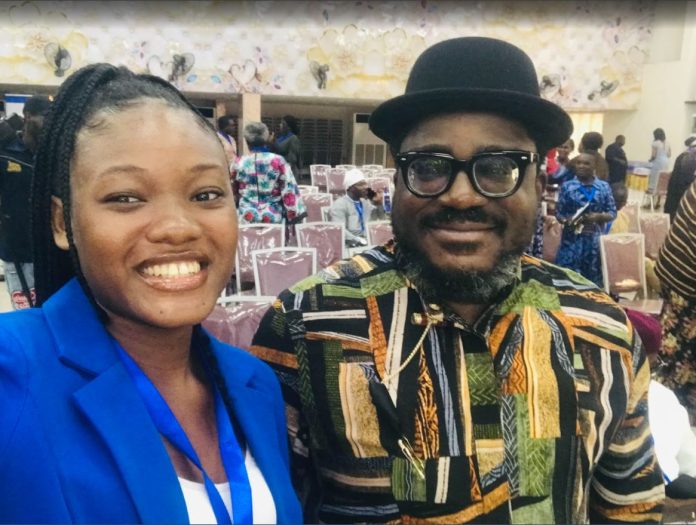Lawyer and Programs Lead at UNESCO Youth Orientation for Development (YOD), Inikpi Amodu, has issued a powerful call to action for governments, development organizations, and institutions to rethink the way youth engagement is designed and sustained.
In a thought-provoking statement shared on LinkedIn, Amodu criticized what she described as the “ceremonial” approach to youth inclusion, where young people are often invited to discussions or events for the sake of representation, without being meaningfully integrated into the structures that drive decision-making and continuity.
“Until we stop treating youth engagement like a checkbox, we’ll keep mistaking activity for impact,” Amodu wrote.
She argued that while many organizations showcase impressive youth programs and events, the real challenge lies in sustaining intentional engagement — ensuring that young voices continue to influence outcomes long after the spotlight fades.
The Continuity Gap
Amodu recounted her experience representing UNESCO YOD at the Global Rights Programme in 2024, where she met Hon. Victor Obuzor, Chairman of the Civil Societies in Nigeria. According to her, Obuzor posed a question that continues to resonate deeply:
“What’s the strategy for sustaining and continuing impact?”
This question, she explained, exposes a major gap in the global development space — a tendency to celebrate participation without building mechanisms for long-term influence or leadership transition. Amodu noted that many youth initiatives end once funding or events conclude, leaving participants inspired but unsupported in transforming that inspiration into tangible community or policy outcomes.
From Symbolism to Systems
In her reflection, Amodu emphasized that youth engagement should not be performative — it should be structural.
“It’s not just about giving youth a mic for representation; it’s about giving them systems that let their voices echo into sustainability,” she said.
She urged organizations to design frameworks that institutionalize youth participation, such as mentorship pipelines, youth advisory boards with decision-making power, and feedback mechanisms that allow young contributors to track how their input shapes outcomes.
Key Questions for the Development Sector
To move from activity to impact, Amodu encouraged stakeholders to critically assess their projects through three fundamental questions:
- What’s the structure for continuity?
- How do we sustain impact after visibility fades?
- How can we transform participation into measurable influence?
These questions, she said, should form the foundation of any youth-centered program, ensuring that engagement becomes a movement of continuity, not a moment of visibility.
A Call to Redefine Youth Inclusion
Amodu concluded her message with a resounding takeaway:
“Youth engagement should not be a moment. It should be a movement that outlives the moment.”
Her statement resonates with a growing global conversation about youth-led governance, innovation, and policy sustainability — emphasizing that meaningful engagement must go beyond events and hashtags, evolving into systemic collaboration that shapes institutions, policies, and the future.
In the context of UNESCO YOD’s mission to empower young voices and drive innovation, Amodu’s remarks underscore the urgent need for intentional structures that allow young people not only to participate but to co-create, lead, and sustain impact at every level of development.




